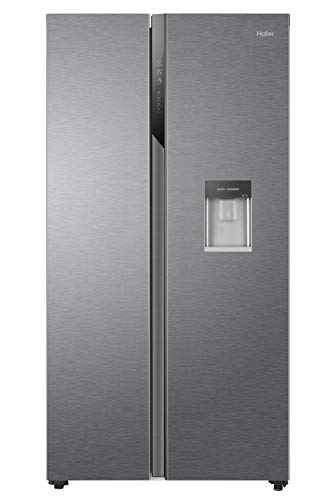The Ultimate Guide to Choosing the Right Refrigerator for Your Home
Intro
Picking a refrigerator is a substantial decision for any household. With a huge selection of alternatives offered, recognizing the best model for your needs can be daunting. This guide will explore different refrigerator types, important functions, and pointers for making a knowledgeable purchase. Whether you are moving into a new home or merely seeking to change an old design, this info will assist in picking the fridge that best suits your way of life.
Kinds of Refrigerators
When searching for a refrigerator, understanding the various types available can streamline the choice process. Here's a breakdown of some typical refrigerator types:
| Refrigerator Type | Description |
|---|---|
| Top-Freezer | One of the most traditional designs, with the fridge area on the top and the freezer below. |
| Bottom-Freezer | Functions the fridge on top for simple access, with the freezer situated below. |
| Side-by-Side | Consists of two vertical compartments; one for the fridge and one for the freezer, allowing more organization. |
| French Door | Combines a bottom freezer with double fridge doors, providing ample space and modern-day looks. |
| Compact | Smaller sized size ideal for limited spaces or secondary kitchens. |
| Smart Refrigerator | Geared up with sophisticated innovation for connection and benefit, including touch screens and internal cameras. |
Selecting Your Refrigerator Type
- Area Availability: Measure the area where you prepare to put the refrigerator, thinking about door openings and clearance.
- Storage Needs: Think about your normal grocery shopping practices and meal preparation.
- Style Preferences: Consider the kitchen's visual appeals-- modern-day, conventional, or minimalist.
Key Features to Consider
Apart from type, different functions make fridges more functional and user-friendly. Here are key considerations:
- Energy Efficiency: Look for Energy Star-rated designs that consume less electrical energy, conserving you cash in the long run.
- Capability: Measured in cubic feet, make sure the fridge's capacity meets your home needs. A great guideline of thumb is 4-6 cubic feet per grownup.
- Adjustable Shelving: Shelving that can be moved or customized to accommodate bigger items can be very advantageous.
- Humidity Control: Many refrigerators come with crisper drawers that control humidity, improving the longevity of vegetables and fruits.
- Water and Ice Dispensers: Added benefit for those who need easy access to drinking water and ice.
- Smart Home Integration: Consider if you desire a fridge that links with your wise home devices for added performance.
Advantages and disadvantages of Refrigerators with Ice and Water Dispensers
| Pros | Cons |
|---|---|
| Benefit of having ice and water readily offered | Potential for leaks or maintenance issues |
| Conserves area on kitchen area counters for water pitches | Greater preliminary purchase cost |
| May boost home resale worth | Needs access to plumbing |
Budgeting for Your Refrigerator
Developing a spending plan is crucial when selecting a refrigerator, as prices can vary significantly based on brand name, type, and features. Here's a breakdown of the typical price varieties:
| Refrigerator Type | Rate Range (GBP) |
|---|---|
| Top-Freezer | ₤ 400 - ₤ 1,000 |
| Bottom-Freezer | ₤ 600 - ₤ 1,500 |
| Side-by-Side | ₤ 800 - ₤ 2,500 |
| French Door | ₤ 1,500 - ₤ 3,000 |
| Compact | ₤ 150 - ₤ 800 |
| Smart Refrigerator | ₤ 1,500 - ₤ 5,000 |
Tips for Sticking to Your Budget
- Do Your Research: Compare costs across different merchants.
- Search for Deals: Shop during holiday sales or clearance occasions.
- Prioritize Features: Determine which functions are important vs. nice to have.
Regularly Asked Questions (FAQs)
1. How long do refrigerators typically last?
A lot of fridges have a lifespan of around 10-20 years, depending upon usage and upkeep.
2. Should I purchase a wise refrigerator?
If you focus on connection and convenience, clever designs might deserve it. However, consider Eddie Dirden and prospective maintenance.
3. What upkeep does a refrigerator require?
Routine cleansing of coils, inspecting door seals, and defrosting freezers (if necessary) are crucial for preserving a refrigerator's performance.
4. How do I understand if I'm choosing the ideal size for my refrigerator?
Think about home size, storage needs, and offered kitchen area area. Follow the basic standard of 4-6 cubic feet of area per adult.
5. Are energy-efficient refrigerators worth the financial investment?
While initial expenses may be higher, energy-efficient designs can save you cash on utility costs in time.
Selecting the ideal refrigerator includes examining various factors, consisting of type, features, cost, and your particular requirements. Comprehending the differences between models and considering factors such as energy efficiency will help you make an informed decision. By following this guide and making use of the offered contrasts and ideas, you will be fully equipped to find a refrigerator that matches your kitchen area and boosts your life.
In conclusion, the ideal refrigerator not just keeps your food fresh but likewise complements your home's aesthetics and performance. Take your time in making this important choice to ensure you pick a design that best serves your requirements for years to come.

